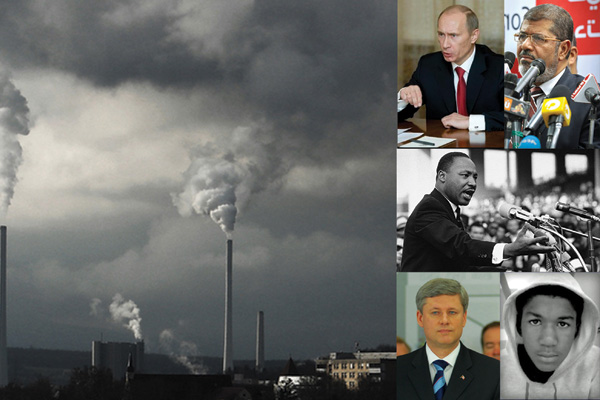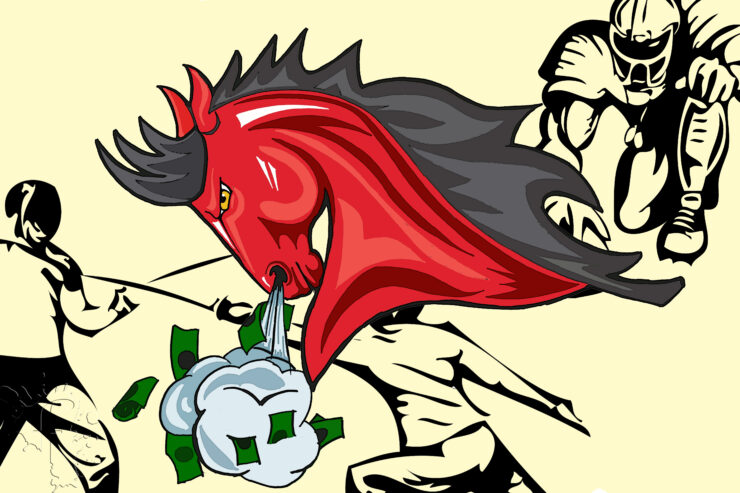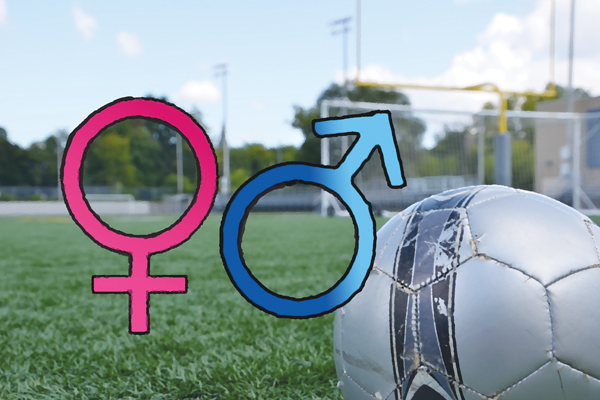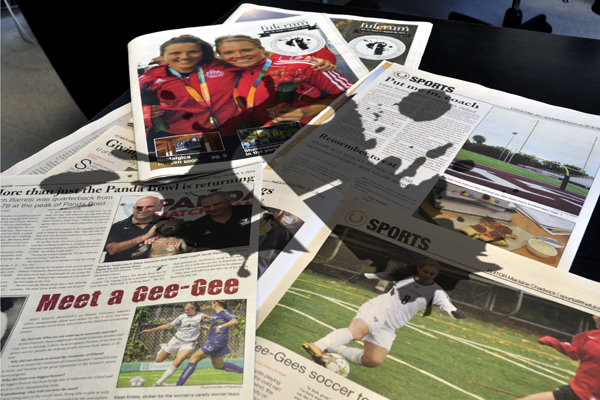Resolutions of equality, sustainability, and democracy prove to be futile once again
The year 2013 was a reminder of how poorly we uphold our resolutions.
By resolutions, I don’t mean the clichéd promises we make on New Year’s, like that we’re going to start eating healthier, hit the gym on a regular basis, or stop spending and start saving for a change. I mean the resolutions I believed we had made as a society to do better next time. These resolutions I hoped for in the world failed, once again, in 2013.
I hoped we would attain greater equality. But in 2013, rather than allowing citizens to practice their religions freely, we saw the of Quebec government propose a Charter of Quebec Values that would ban employees from wearing religious symbols such as turbans, hijabs, kippahs, and large crucifixes in the workplace.
As we celebrated the 50th anniversary of Martin Luther King’s “I Have a Dream” speech, George Zimmerman was acquitted of shooting and killing Trayvon Martin, an unarmed black high school student.
The Russian government also passed a law that bans the “propagandizing of non-traditional sexual relations among minors,” just ahead of the Winter Olympics hosted by the country in Sochi.
And our failures don’t end with equality. I had hoped the world would become a more sustainable place for future generations.
But in her review of 2013, Green Party leader Elizabeth May explained that greenhouse gases in our planet’s atmosphere have passed a new, dangerous threshold—400 parts per million—and yet the National Energy Board has recommended the approval of the Northern Gateway pipeline.
All this was coupled with the tragic incident of July 6 when a tanker carrying crude oil derailed and exploded in Lac-Mégantic, Que., leaving 47 dead.
I hoped democracy would be strengthened—not only in Canada, but in all parts of the world—through legitimacy and accountability.
But in 2013, the first democratically elected president of Egypt, Mohamed Morsi, was toppled by the country’s military. Thousands have since been killed in crackdowns on protesters.
In Canada, there was the Senate expense scandal involving four senators, the prime minister’s office, and the prime minister himself. Questions still remain. And there was the Rob Ford fiasco, which taught us that mayors can admit to getting drunk, smoking crack cocaine—after having repeatedly denied it—bullying other city councillors, accusing a journalist of pedophilia, and yet still remain in office.
In short, 2013 was a year in which our successes were largely overshadowed by our failures. The resolutions I hoped the world kept crashed and burned along the way.
Achieving greater equality, building a sustainable future, and fostering democratic principles may not be the kinds of promises we make on a whim come New Year’s Eve, but I nevertheless am optimistic we can attain them.
Unless we want to have a similar 2014, it’s time we found a new way to address them.






